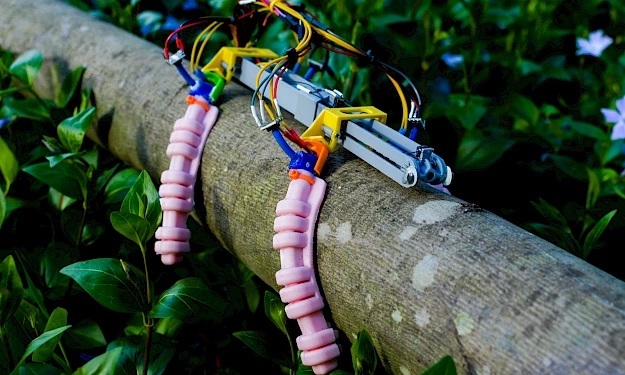UC researchers develop artificial muscles that adapt to their surroundings
These soft actuators have broad potential applications — from bioinspired robots for ecosystem monitoring, prosthetics and rehabilitation devices, among others.
A research team from the Faculty of Sciences and Technology, University of Coimbra (FCTUC) has developed artificial muscles that adapt compliantly to their surroundings, enabling more precise and versatile movements in soft robots.
Fully fabricated at FCTUC using commercially available materials and 3D printing, these actuators operate through the phase transition of water from liquid to gas, triggered by a flexible heating element. They demonstrate deformation rates exceeding 16%/s, pressurization rates of 100 kPa/s, and blocked forces over 50 N, all while operating at relatively low voltages of 24 V.
“Water was chosen for its safety and low diffusivity in surrounding materials. Our results show that the high enthalpy of vaporisation does not limit the creation of high-performance actuators,” explains Pedro Neto, Professor of Mechanical Engineering.
These actuators have been successfully integrated into a quadruped robot and a biomimetic robotic hand, paving the way for a new class of compliant, low-cost soft robots. Potential applications include bioinspired robots for ecosystem monitoring, prosthetics, rehabilitation devices, and industrial grippers capable of handling a wide range of objects.
The research, led by PhD student Diogo Fonseca under the supervision of Pedro Neto, is published in Nature Communications, with a demonstration video showcasing actuator integration in soft robotic systems


